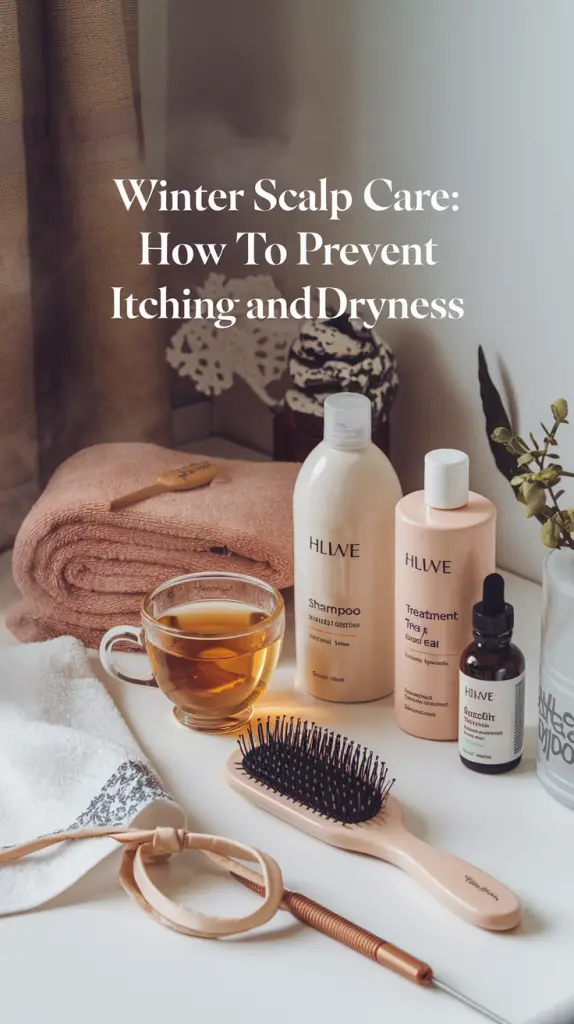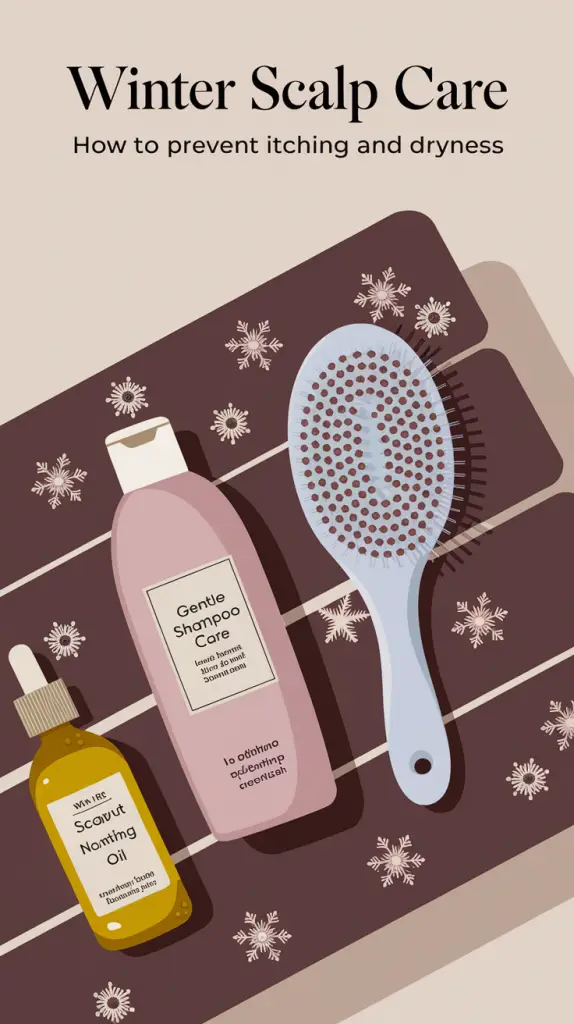Winter Scalp Care: How to Prevent Itching and Dryness
Winter is magical, but let’s face it, it wreaks havoc on our skin and scalp. If you’ve ever dealt with an itchy, dry scalp during colder months, you know how uncomfortable and frustrating it can be. I’ve faced these challenges myself, and through trial and error, I’ve learned how to care for my scalp effectively in winter. Let’s explore the ultimate guide to winter scalp care so you can say goodbye to itching and dryness.
Why Does Winter Cause Scalp Problems?
During winter, the cold, dry air outside and heated indoor environments strip moisture from your scalp. This leads to:
- A compromised scalp barrier.
- Reduced natural oil production.
- Increased flakiness and irritation.
Hot showers, often a comfort during chilly months, exacerbate the issue by stripping your scalp of its natural oils.
How to Prevent Itching and Dryness
Hydrate Your Scalp
Keeping your scalp moisturized is the foundation of winter care. Here are some proven methods:
| Hydration Tips | Why It Helps |
|---|---|
| Use natural oils (coconut, jojoba). | Replenishes lost moisture and soothes irritation. |
| Apply aloe vera gel. | Lightweight hydration and anti-inflammatory benefits. |
| Drink plenty of water. | Supports hydration from within for better scalp health. |
Pro Tip: Massage warm oil into your scalp once a week to improve blood flow and moisture retention.
Choose the Right Hair Products
Switching to gentle products is key for protecting your scalp. Avoid sulfates, which strip natural oils, and look for hydrating ingredients like hyaluronic acid, glycerin, or tea tree oil.
| Recommended Products | Key Features |
|---|---|
| Sulfate-free shampoos (SheaMoisture, Aveeno). | Gentle cleansing without stripping moisture. |
| Deep conditioners with argan oil. | Adds hydration and nourishes the scalp. |
| Zinc-based dandruff shampoos. | Tackles flakes and soothes itching. |
Adjust Your Shower Routine
Hot showers feel amazing in winter, but they harm your scalp. Follow these steps:
- Use lukewarm water to preserve natural oils.
- Wash hair 2-3 times a week to prevent overwashing.
- Always condition your hair to lock in moisture.
Protect Your Scalp from the Cold
Exposure to harsh winter winds can worsen dryness. Wear breathable hats or scarves to shield your scalp.
Pro Tip: Opt for cotton or silk linings under wool hats to prevent irritation.
Use a Humidifier Indoors
Heating systems dry out the air, leading to a drier scalp. A humidifier adds moisture to the air, improving your scalp’s hydration.
Try Scalp Exfoliation
Exfoliation removes dead skin cells and product buildup, promoting better absorption of hydrating products.
| DIY Exfoliating Scalp Scrub | Ingredients |
|---|---|
| 2 tablespoons sugar | Gentle physical exfoliation. |
| 1 tablespoon coconut oil | Moisturizing base for the scrub. |
| 5 drops tea tree oil | Reduces itchiness and soothes the scalp. |
Gently massage this mixture into your scalp once a week.
Supporting Scalp Health with Diet and Lifestyle
Diet for a Healthy Scalp
Eating nutrient-rich foods can transform your scalp health. Focus on:
- Omega-3 fatty acids: Found in salmon, walnuts, and flaxseeds.
- Vitamin E: Sources include sunflower seeds and avocados.
- Zinc: Available in chickpeas and pumpkin seeds.
Manage Stress
Stress disrupts hormonal balance, worsening dryness and irritation. Incorporate activities like yoga, meditation, or exercise to promote scalp health.
Common Winter Scalp Mistakes
Avoid these pitfalls to maintain a healthy scalp:
- Overwashing your hair.
- Scratching an itchy scalp.
- Using harsh styling products.
- Neglecting to clean hairbrushes and hats regularly.
DIY Natural Remedies
Aloe Vera and Honey Mask
- Ingredients: 2 tablespoons aloe vera gel, 1 tablespoon honey.
- How to Use: Apply to the scalp, leave for 20 minutes, and rinse.
Apple Cider Vinegar Rinse
- Ingredients: 1 part apple cider vinegar, 2 parts water.
- How to Use: Use as a final rinse after shampooing to restore scalp pH.
FAQs About Winter Scalp Care
How do I differentiate between dandruff and a dry scalp?
Dandruff typically causes oily, larger flakes, while dry scalp leads to smaller, dry flakes. Dandruff often accompanies redness and irritation.
Should I oil my scalp daily in winter?
No, over-oiling can lead to buildup. Oiling once or twice a week is sufficient.
Can stress contribute to scalp dryness?
Yes, stress can affect hormone levels, worsening dryness. Managing stress can improve overall scalp health.
What’s the best way to protect my scalp outdoors?
Wear breathable hats made from cotton or silk. Wool hats should have a protective lining to prevent irritation.
Is scalp exfoliation necessary?
Yes, but limit it to once a week to remove dead skin cells and enhance product absorption.
Conclusion
Winter doesn’t have to mean an itchy, flaky scalp. By hydrating, protecting, and nourishing your scalp, you can enjoy the season with confidence. Incorporate these tips into your routine, and you’ll notice a healthier, more comfortable scalp in no time. Start your journey to a flake-free winter today—your scalp will thank you!



